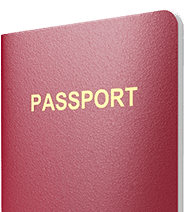The government recently announced that they would be rolling out IDVT (Identity Document Validation Technology) across Right to Work and DBS, to allow the technology, initially put in place in response to the need for remote checking during the pandemic, to become permanent.
But what are digital identity checks, and what exactly is changing?
What does Right to Work mean?
Under the Immigration, Asylum and Nationality Act, employers may be liable for a fine of £20,000
per candidate, and/or up to 5 years in prison if they fail to carry out a Right to Work check and
subsequently employ someone who does not have the legal right to work in the UK.
In the past, this has meant that candidates must present hard identity documents in person, both to
check the validity of the documents and ensure that the person physically resembles the provided
photographic ID.
In response to the need for social distancing, the pandemic forced the UK government to bring in to
force emergency guidelines to encourage digital verification, for Right to Work, Right to Rent and
DBS checks. The government has recently announced that the measures will become permanent.
Digital Identity and Attribute Trust Framework (IDVT)
Employers and landlords will now be able to use certified providers of digital identity document
verification technology, to check the credentials of workers and renters before employing them or
providing them with a rental contract.
From January 2022, the UK Digital Identity and Attribute Trust Framework will open for providers to
begin the certification process, regulating technology which has been in place, and used by, forward
thinking companies like Ship Shape, for several years.
The technology is aimed at providing a straightforward solution for people to verify their identity,
and right to work status, remotely and in a secure way.
What is digital identity checking?
Digital identity checking technology allows people to upload digital copies of documents rather than
present them in person.
For many employers and service providers, digital identity checking has been a common onboarding
feature for some time. Digital documents make it easier for everyone in the supply chain to check
that documents are up to date and provide a simple solution for workers who might find it difficult
to present in person to an office, for example for remote or distance work.
Given the stringent consequences for failing to carry out Right to Work checks, maintaining
compliance must be a priority for all employers. And now being able to choose from certified
suppliers will be a bonus for employers who have previously used, albeit reliable, but unregulated
providers.
What does digital identity checking mean for contractors?
For contractors, the move to digital identity checks will make the onboarding process much faster
for most.
Contractors should prepare themselves for digital identity checking if they are not already working
with a company that has verified their identity via digital checks in the past.
Certain documents, such as birth certificates, will not be accepted. So those contractors who do not
already have a digital identity document (such as passport or driving licence) should prepare
themselves for a longer, traditional in person onboarding process.
IDVT and the future
The government’s move to make IDVT a permanent, legislated process, confirms the decision of
employers like Ship Shape to use digital identity checking, for its advantage to everyone in the
supply chain.
We at Ship Shape have been using digital identity checks for some time and will continue to maintain
our high standards, as the rest of the industry catches up with us.
Talk to us today if you have any queries about the new legislation.


